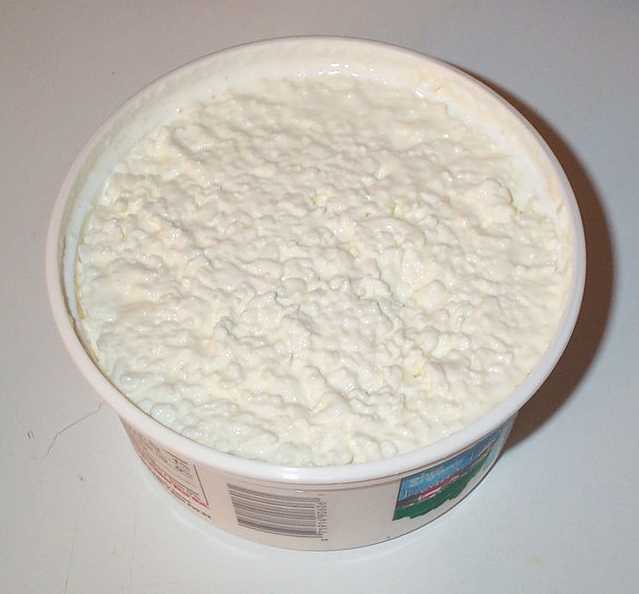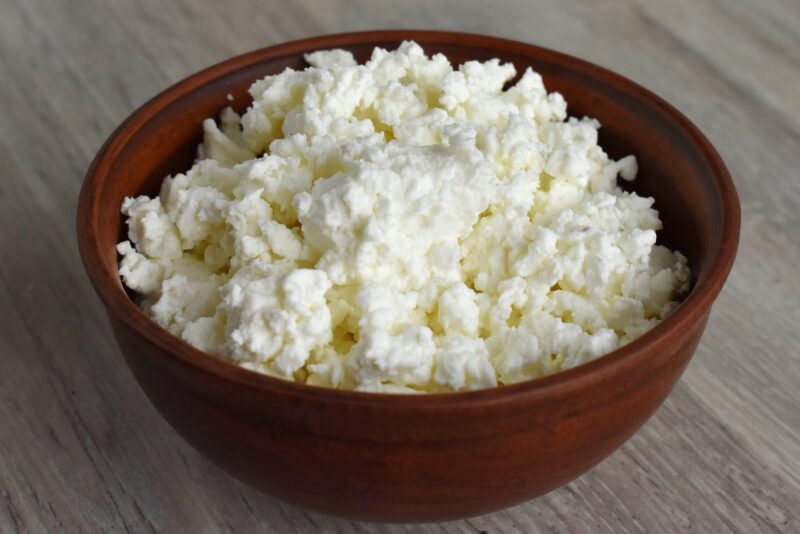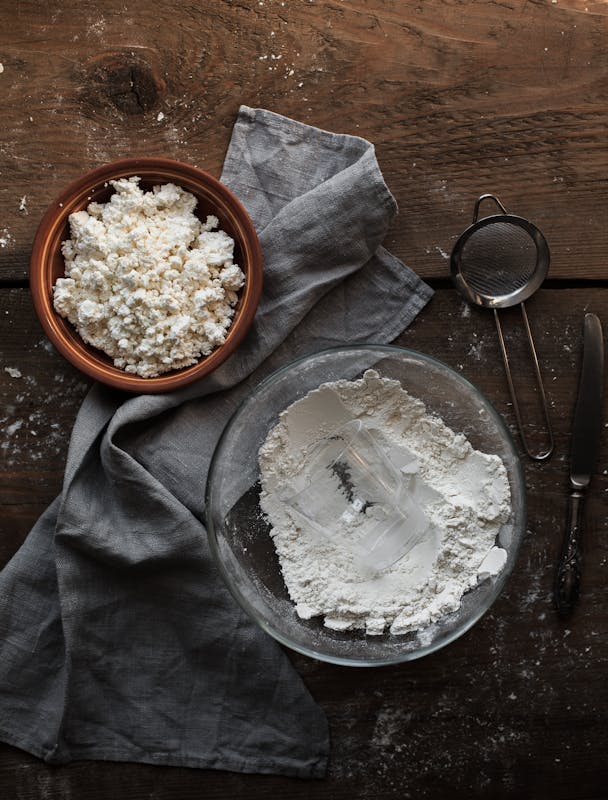Cottage cheese is a versatile dairy product that has found its way into numerous kitchens around the world. Whether used in savory dishes, sweet treats, or enjoyed on its own, it offers a rich source of protein and a delightful texture.
But what happens when you have a large tub of cottage cheese and are unsure if it can last beyond its expiration date? The burning question arises: Can you freeze cottage cheese?
In this comprehensive post, we’ll explore all aspects of freezing cottage cheese, from the practical steps to preparing it for the freezer, to the nuances of its texture and flavor post-thaw. Let’s embark on this culinary journey together!
Can You Freeze Cottage Cheese?
If you find yourself with an excess of cottage cheese or seek ways to preserve its freshness, you might wonder, “Can you freeze cottage cheese?” The short answer is yes; you can freeze cottage cheese. However, the process requires specific considerations to ensure that you maintain as much of its original quality as possible.
Does Freezing Affect Cottage Cheese?
Freezing cottage cheese can alter its texture. Upon thawing, you may notice that it has become grainy or separated. This change occurs because freezing causes ice crystals to form within the curds, disrupting their delicate structure. While these changes may not be aesthetically pleasing, many people find that the flavor remains intact, allowing them to use the thawed cheese in cooking or baking.
How to Freeze Cottage Cheese: A Step-by-Step Guide
If you decide to freeze cottage cheese, follow these steps for the best results:
Choose the Right Container: Use airtight containers or freezer bags to prevent freezer burn. If using bags, squeeze out any excess air before sealing.
Portion Control: Consider freezing cottage cheese in individual portions. This approach makes it easier to thaw only what you need later.
Label and Date: Always label your containers with the date of freezing. This practice helps you keep track of how long the cottage cheese has been stored.
Freeze Quickly: Place the containers in the coldest part of the freezer to ensure rapid freezing, which reduces ice crystal formation.
Thawing: When you’re ready to use the frozen cottage cheese, transfer it to the refrigerator and thaw it slowly. For quicker thawing, you can place the sealed bag in cold water, but be cautious not to rush the process, as rapid temperature changes can further affect texture.
How Does Thawed Cottage Cheese Taste?
One of the key concerns about freezing cottage cheese is how it will taste once thawed. Although texture changes can occur, the flavor is generally preserved, making it perfectly suitable to use in various dishes. Thawed cottage cheese can be a delicious addition to smoothies, pancakes, or baked dishes, where its altered texture is less noticeable.
Culinary Creativity with Thawed Cottage Cheese
Once thawed, you can adapt your recipes to effectively incorporate the changes in texture. Here’s how:
Smoothies: Blend thawed cottage cheese into your favorite smoothie recipe. The creaminess adds a delicious richness, and the grainy texture is unnoticeable once blended with fruits.
Baking: Use thawed cottage cheese in baked goods. Muffins, cakes, or pancakes benefit from the added moisture and protein without compromising texture.
Savory Dishes: Incorporate it into casseroles or lasagnas. The cheese melts and mixes beautifully with other ingredients.
Precautions When Freezing Cottage Cheese
While freezing can extend the life of your cottage cheese, it is essential to be aware of some precautions. Freezing does not kill bacteria; it merely puts it into a dormant state. If cottage cheese has been left at room temperature before freezing, it’s best to discard it. Additionally, always check for signs of spoilage before consuming frozen and thawed products.
Understanding Expiration Dates
One important aspect of any food preservation discussion is understanding expiration dates. Cottage cheese typically has a ‘best by’ date, not a strict expiration date. It means that while it will likely still be safe to consume shortly after this date, the quality may decline. If you’re considering freezing it close to this date, ensure it still looks and smells fresh before freezing.
Alternatives to Freezing Cottage Cheese

If freezing cottage cheese seems daunting or not suitable for your needs, consider alternative methods of preservation that might work better.
Short-Term Storage Options
Refrigeration: The simplest way to store cottage cheese is to keep it in the refrigerator. Ensure it’s well-sealed to prevent it from absorbing strong odors from other foods.
Using Higher Fat Content Options: Full-fat cottage cheese maintains its texture better than low-fat versions. If you plan to eat it soon, consider buying full-fat for a more enjoyable experience.
Incorporating into Meals: If you find yourself with surplus cottage cheese, think about incorporating it into your meals right away. This proactive approach prevents waste and allows you to savor its fresh taste.
Other Cheeses and Dairy for Freezing
If you’re open to exploring other options, consider these similar products:
Ricotta Cheese: Like cottage cheese, ricotta can also be frozen with careful preparation. It may retain its texture better than low-fat cottage cheese, making it a useful replacement in recipes.
Cream Cheese: Cream cheese can be frozen effectively, though it may also change in texture. It works well in recipes where it’s blended or cooked.
The History of Cottage Cheese and Freezing Techniques
Understanding the past can provide context to how we freeze cottage cheese today. Cottage cheese has a rich history stretching back to ancient times when dairy farmers created it from leftover curds. The method of preserving dairy products has also evolved.
Freezing Techniques Over Time
Early Preservation Methods: Before refrigeration, people relied on salting, smoking, and drying as means to extend the life of perishable foods. The advent of this technology revolutionized food storage and allowed fresh products to be enjoyed year-round.
Modern Ice Preservation: With the introduction of modern freezers, we gained the ability to freeze foods while maintaining their nutritional quality. This change transformed how we view food preservation and allowed for greater creativity in the kitchen.
FAQs About Freezing Cottage Cheese
Unfortunately, questions often arise regarding cottage cheese and freezing. Let’s address some of the most common queries:
Q: Can I freeze store-bought cottage cheese?
Yes, store-bought cottage cheese can be frozen under the same conditions as homemade. Just ensure it hasn’t been opened for too long and check for any signs of spoilage.
Q: How long can frozen cottage cheese last?
Typically, frozen cottage cheese can last up to three months in the freezer. While it may still be safe to eat beyond this timeframe, its quality might diminish.
Q: Can I freeze cottage cheese after mixing it with other ingredients?
Freezing cottage cheese mixed with fruits or other ingredients is not recommended, as the freezing can impact both the texture and flavor of all the components involved.
Conclusion
Using cottage cheese should no longer feel like a conundrum, even if you have more than you know what to do with. Freezing is a viable option to preserve its freshness and maintain its utility in your kitchen. While some alteration in texture may occur, the flavor remains intact, ensuring you can still enjoy its delightful taste in various dishes. Embrace your cottage cheese with confidence; freeze it, incorporate it into your meals, or simply enjoy it fresh. After all, food waste is never an option; it’s about enjoying flavorful nourishment with every bite. So go ahead, unleash your culinary creativity, and let cottage cheese inspire you!







